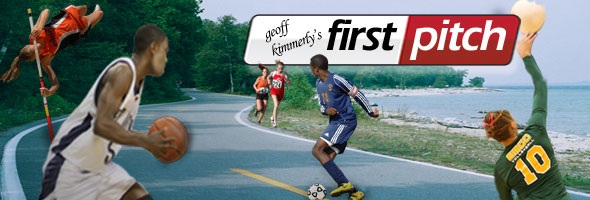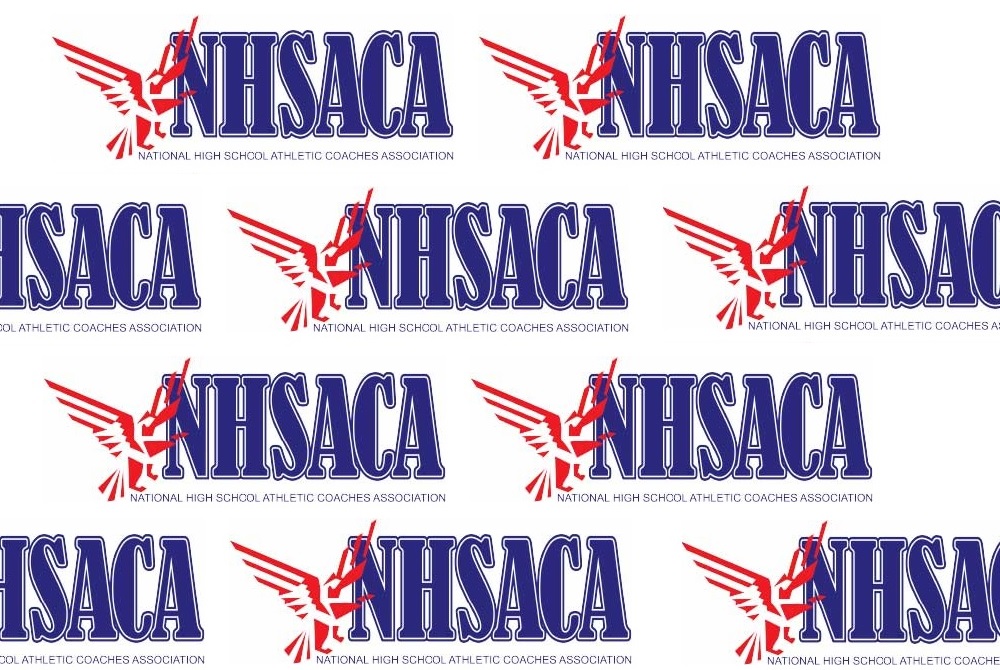
Keep on Coaching
February 1, 2013
By Geoff Kimmerly
Second Half editor
A few weeks ago, I finally got my first chance this season to watch a friend coach his basketball team. After guiding some others at the lower levels, this is his first time running the varsity – something he wasn't sure he wanted to do with a 1-year-old just learning to walk, but a challenge he ended up taking on to the benefit of all those involved.
Simply put, he’s good. I've seen a lot of teams and a lot of coaches over the past 15 years, and although I wouldn't know much of what to do if I were walking the sideline, I felt pretty qualified in telling him I was impressed – even if he didn't buy that I was offering an unbiased opinion. The best news is he’s gone from not sure about this a few months ago to talking about next season.
We know, at least anecdotally, that coaching continues to get more challenging. The time commitment has grown substantially to make running a program a year-round endeavor in a lot of sports at a lot of schools.
That commitment – especially for coaches with children of their own – was a main reason referred to in a New Haven Post-Chronicle story Saturday that noted 23 football coaching openings in Connecticut at one point this offseason. That state has 146 football teams – meaning roughly 15 percent will have new leaders this fall.
And that got me thinking about my friend, about how glad I am he’s given this a shot, and how I've seen so many others either not do so, or not stick around long despite having some pretty nice success.
A study published last winter in Interscholastic Athletic Administration magazine – a product of the National Interscholastic Athletic Administrators Association – noted some predictable results of a study that sought to determine the biggest challenges faced by first-year high school coaches.
The toughest according to the study was balancing the demands of coaching and teaching, experienced by nearly half the respondents – 98 percent of which coached high school teams and 81 percent of which are teachers.
The next six reasons all were noted by at least 30 percent of those in the study – personal fatigue, securing community support, securing and caring for facilities and equipment, parental contact, keeping non-starting players motivated, dealing with schedule interruptions and motivating athletes to achieve consistent, peak performance.
Nothing there is earth-shaking, and most if not all of these challenges are faced by high school coaches regardless of how long they've been in the field. But I got a little more perspective from some of the 32 items that ranked as least challenging to the first-year leaders – keeping in compliance with state and league regulations, dealing with substance abuse issues, teaching sport skills and creating a positive team atmosphere – things that seem most important, and yet appear to be easiest to do. I’m not sure what that tells us – but I think it tells us something.
Click to check out the entire three-page breakdown of the study, plus the researchers’ recommendations to remedy some of what first-year coaches face.
Giving back to Saginaw
I love reading about high-level athletes – like a star-studded group of alums from Saginaw – giving back to where they got their starts.
Pittsburgh Steelers star LaMarr Woodley made a big impact before the start of this school year by donating $60,000 to cover all participation fees for athletes in his former school district. The Saginaw News’ Hugh Bernreuter writes today about how Woodley (Saginaw High), the Philadelphia 76ers’ Jason Richardson (Saginaw Arthur Hill) and former Oakland Raiders standout Stu Schweigert (Saginaw Heritage) have combined to give more than $865,000 back to their home communities.
Bernreuter also mentions the non-monetary contributions of the Golden State Warriors’ Draymond Green (Saginaw High) and former Indianapolis Colts receiver Blair White (Saginaw Nouvel).
Click to read more about it.
Quote(s) of the Week
While rifling through more papers on my desk, I found an article from the Washington Post from Sept. 2011 titled “How high school sports save our schools.” I was drawn to it in part because I spent more than a decade in a newsroom, and it was a piece by a reporter covering education who instead of reporting on school boards and the like, delved into the importance of interscholastic athletics to education as a whole.
He spoke of how participation continues to grow even as resources dwindle, and of data supporting that extracurriculars like sports are more effective than academic classes in teaching leadership, teamwork, time management and “other skills crucial for success in the workplace.” Later, he mentioned a study noting that those who participate in extracurriculars earned more a decade later.
Click here to read the entre piece. These passages struck me most.
“Coaches might be the only faculty members still allowed by our culture and educational practice to get tough with students not making the proper effort. They have the advantage of teaching what are essentially elective non-credit courses. They can insist on standards of behavior that classroom teachers often cannot enforce because the stakes of dismissing or letting students drop their courses are too high. …
“Students do better in activities they choose. If we provide more of them, led by committed adults … that can make a difference. We know the bad news about education. Dropout rates are high. Achievement scores are stagnant. But sports participation is going up, despite pressure to cut it back. Let’s cheer about that and look for a way to draw in more students.”

3 Receive National Honors from NHSACA, Coaching Pair Named to Hall of Fame
By
Geoff Kimmerly
MHSAA.com senior editor
July 11, 2024
One of the longest-serving members of the MHSAA Representative Council and two longtime Michigan high school coaches have received highest honors this summer from the National High School Athletic Coaches Association.
Brighton athletic director John Thompson was named Athletic Director of the Year during the NHSACA’s annual conference June 26 in Bismarck, N.D. He has supervised the Bulldogs’ highly-accomplished athletic program for two decades and served on the Representative Council the last 14 years, including currently as vice president.
Thompson also this year received the Thomas Rashid Athletic Director of the Year Award from the Michigan Interscholastic Athletic Administrators Association (MIAAA). Brighton was selected as an MIAAA exemplary athletic program in 2015 and as an ESPN unified champion school in 2018, the latter recognizing its statewide leadership in cultivating unified sport opportunities.
Additionally, Farmington Hills Mercy girls golf coach Vicky Kowalski and Livonia Stevenson girls swimming & diving coach Greg Phil were named NHSACA National Coach of the Year in their respective sports.
Kowalski completed her 46th season coaching Mercy last fall by leading the program to its second-straight Lower Peninsula Division 2 championship and fourth MHSAA Finals title overall. She also in January was named the 2022-23 National Coach of the Year in her sport by the National Federation of State High School Associations (NFHS) Coaches Association. She was inducted into the Michigan High School Coaches Association (MHSCA) Hall of Fame this year for both golf and bowling.
Phil has coached girls swimming & diving since 1976, including at Stevenson since 1985. After winning the Kensington Lakes Activities Association East title, the most recent of several league championships under his leadership, Stevenson finished 16th at last season’s Lower Peninsula Division 1 Finals and previously had placed Finals runner-up twice. Phil was named to the MHSCA Hall of Fame in 2012.
All three honorees were nominated for the national recognition by the MHSCA. Beal City baseball coach Brad Antcliff, now-retired Leland volleyball coach Laurie Glass, Ann Arbor Greenhills boys tennis coach Eric Gajar and Lowell wrestling coach R.J. Boudro also were National Coach of the Year finalists.
Additionally, longtime softball coaches Kay Johnson of Morenci and Kris Hubbard from Ottawa Lake Whiteford were inducted into the NHSACA Hall of Fame. Johnson went over 1,000 career wins this spring and has led her program since 1993, including to Class C championships in 1985 and 1986. Hubbard retired after the 2019 season with an 865-380-3 record since taking over in 1974, with Class D titles in 1984, 1985 and 1987.

